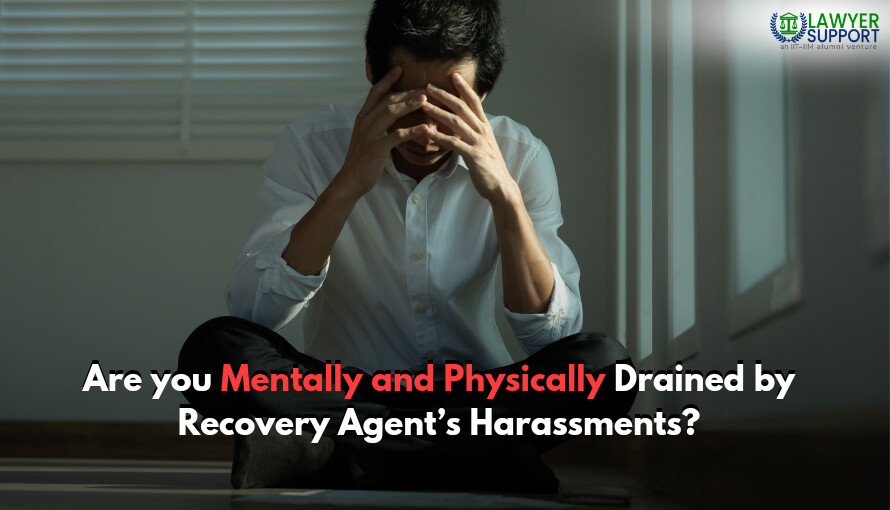· Recovery Agents' Harassment · 3 min read
A Success Story of How Recovery Agents' Harassment Was Stopped Permanently!
Learn how Mr. Chatterjee successfully stopped harassment from recovery agents by understanding and exercising his rights, setting a precedent for others facing similar issues.

Understanding what harassment truly entails refines your awareness of your rights. Loan takers often fall victim to verbal abuse from recovery agents who use aggressive and unruly tactics. These agents thrive because loan takers are unaware of the RBI’s security guidelines. Therefore, it is crucial for loan borrowers to understand their protection laws to avoid potential disasters.
The Reserve Bank of India (RBI) has set guidelines to protect borrowers from harassment by recovery agents. Here are five key rights for borrowers:
- Right to Privacy: Recovery agents must respect the privacy of borrowers, contacting them only at appropriate hours and not early in the morning or late at night. Frequent calls, visits, or any form of harassment is prohibited.
- Right to Dignity: Borrowers should be treated with respect and dignity. Recovery agents must not use abusive language or threatening tactics to recover the debt. Any form of physical or verbal abuse is strictly prohibited.
- Right to Fair Treatment: Borrowers should be informed about the amount due, the interest rate, and any additional charges. They have the right to fair and transparent treatment without hidden charges or misinformation.
- Right to Notice: Before initiating any recovery process, the lender must send a written notice to the borrower. This notice should clearly state the amount due and the steps that will be taken if the borrower fails to repay.
- Right to Grievance Redressal: Borrowers have the right to file a complaint if they face any harassment or unfair practices by recovery agents. Financial institutions are required to have a proper process in place to address and resolve such complaints in a timely manner.
While understanding these rights is essential, learning from others’ experiences can further prepare you for dealing with recovery agents.
Mr. Chatterjee’s Experience
Mr. Chatterjee, who lived in a decent neighborhood, faced extreme harassment by recovery agents. He felt powerless as the agents harassed him for hours. One agent stood outside his house for three hours, shouting and screaming, disrupting the entire neighborhood’s peace.
Following the advice of his legal consultants, Mr. Chatterjee called the Police Control Room (PCR) for immediate help. However, the Sub-Inspector (SI) refused to assist, claiming the agent’s actions were a private matter between Mr. Chatterjee and the bank. Feeling helpless, Mr. Chatterjee sought further assistance from his legal consultants.
The legal consultants promptly evaluated the case and took swift action, recognizing that the harassment violated Mr. Chatterjee’s constitutional and human rights. Here is how they handled the situation:
- Filing an E-FIR: The harassment and local police’s inaction were documented in an electronic First Information Report (E-FIR). This formal record ensured Mr. Chatterjee’s complaint was officially documented.
- Involving Higher Authorities: The consultants contacted the Station House Officer (SHO) of the concerned police station, emphasizing the police’s constitutional duty to protect civilians and highlighting the human rights violations caused by the agent’s behavior. They explained how the agent’s actions violated Mr. Chatterjee’s rights to life and personal liberty as guaranteed by the Indian Constitution. The SHO scolded the SI for neglecting a citizen in dire need of help.
The legal consultants’ tenacious efforts paid off as the SHO took swift action against the agent, who was subsequently arrested for his illegal activities. This proactive approach not only protected Mr. Chatterjee but also set a precedent for handling similar cases.
Conclusion
If you are facing harassment from recovery agents, it is crucial to know your safety laws that protect you from losing control and feeling powerless. If your personal space is violated by collection agents, the first step is to file a complaint with the police. Having legal support can expedite the process, provide more knowledge about your circumstances, and achieve immediate results.

.OYmrenqU.jpg)

